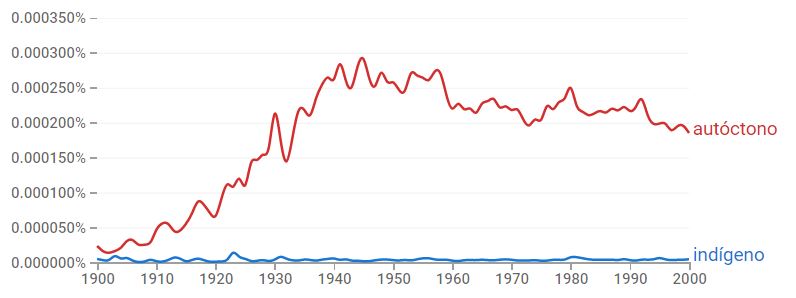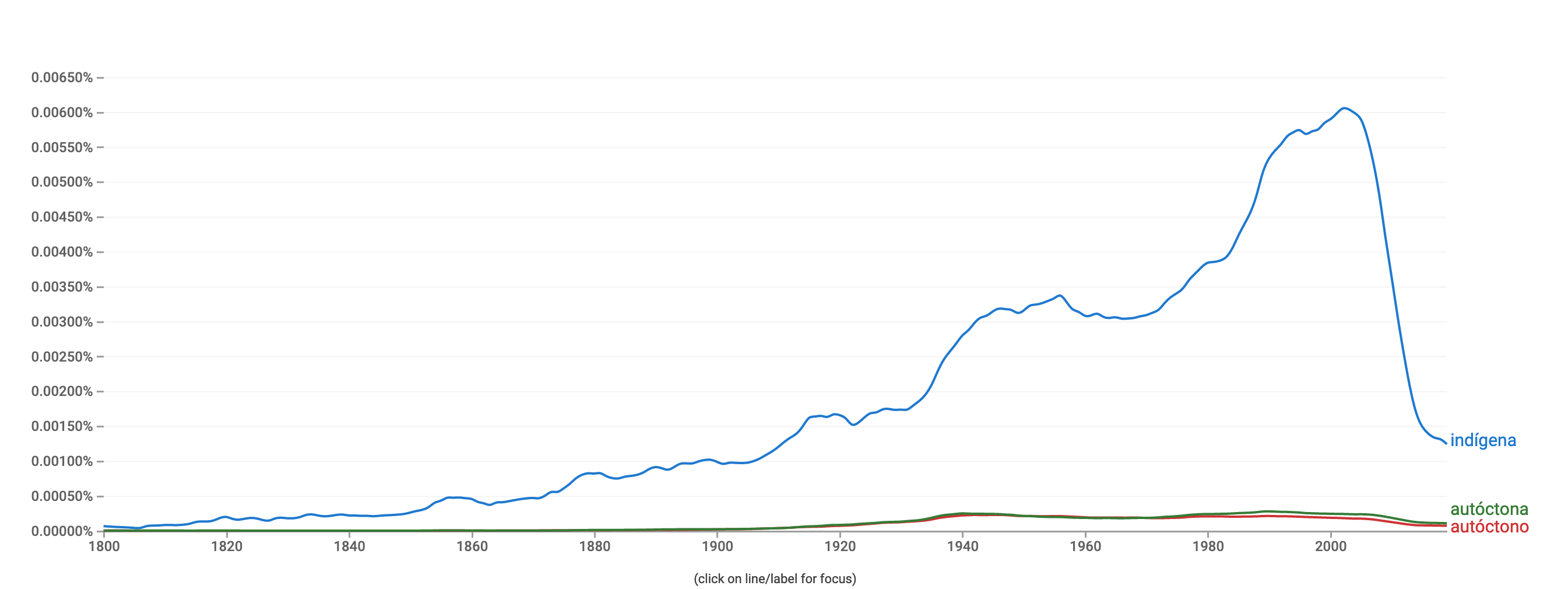The other day, I was attending a Spanish Duolingo event. During this event, the host used the word "autóctono." It got me to thinking What's the difference between "autóctono" and "indígeno"? So, I ran these two words through Google's Ngram viewer:

and then also tried to find some collocations for these two words on linguatools. 161 were found for "autóctono," but none for "indígeno." This made me very curious, so I decided to look these two words up in a few different online dictionaries and ultimately wound up consulting the Diccionario de la lengua española (DLE) (which is where I should have started). Oddly enough, the DLE told me that the word "indígeno" was not in its dictionary. So, I thought That's odd and then went to the entry for "indígena" instead (as the DLE suggested). For that, an entry was returned. This discovery is somewhat backed up by what I found via Google's Ngram Viewer, but, as you can see, some usage of "indígeno" does exist:

For the record, I examined some of the books that contained the word "indígeno" and many of them appear to be books written in Spanish by native speakers.
Obviously, "indígeno" is being used, but is this considered a correct use of Spanish? If so, how does it differ from "autóctono," or are they completely interchangeable?
As a side note, I went back to linguatools and searched for "autóctona" and "indígena." This time, only 86 collocations were found for "autóctona" and 1,507 for "indígena."
¿Es "indígeno" una palabra en español y, si es así, en qué se diferencia de "autóctono"?
El otro día, asistía a un evento de Duolingo en español. Durante este evento, el anfitrión utilizó la palabra "autóctono". Me hizo pensar ¿Cuál es la diferencia entre "autóctono" e indígeno"? Así que pasé estas dos palabras por el Ngram Viewer de Google:
[Véanse arriba en la parte inglesa.]
y luego también traté de encontrar algunas colocaciones para estas dos palabras en linguatools. Se encontraron 161 para "autóctono", pero ninguna para "indígeno". Esto me dio mucha curiosidad, así que decidí buscar estas dos palabras en varios diccionarios en línea y finalmente terminé consultando el Diccionario de la lengua española (DLE) (que es por donde debería haber empezado). Curiosamente, el DLE me dijo que la palabra "indígeno" no estaba en su diccionario. Así que pensé que era extraño y fui a la entrada de "indígena" en su lugar (como el DLE sugería). En este caso, sí que aparecía una entrada. Este descubrimiento se ve respaldado por lo que encontré a través del Ngram Viewer de Google, pero, como se puede ver, existe algún uso de "indígeno":
[Véanse arriba en la parte inglesa.]
Obviamente, se está utilizando "indígeno", pero ¿se considera un uso correcto del español? Si es así, ¿en qué se diferencia de "autóctono", o son completamente intercambiables?
Traducción realizada, en parte, con la versión gratuita del traductor www.DeepL.com/Translator.

